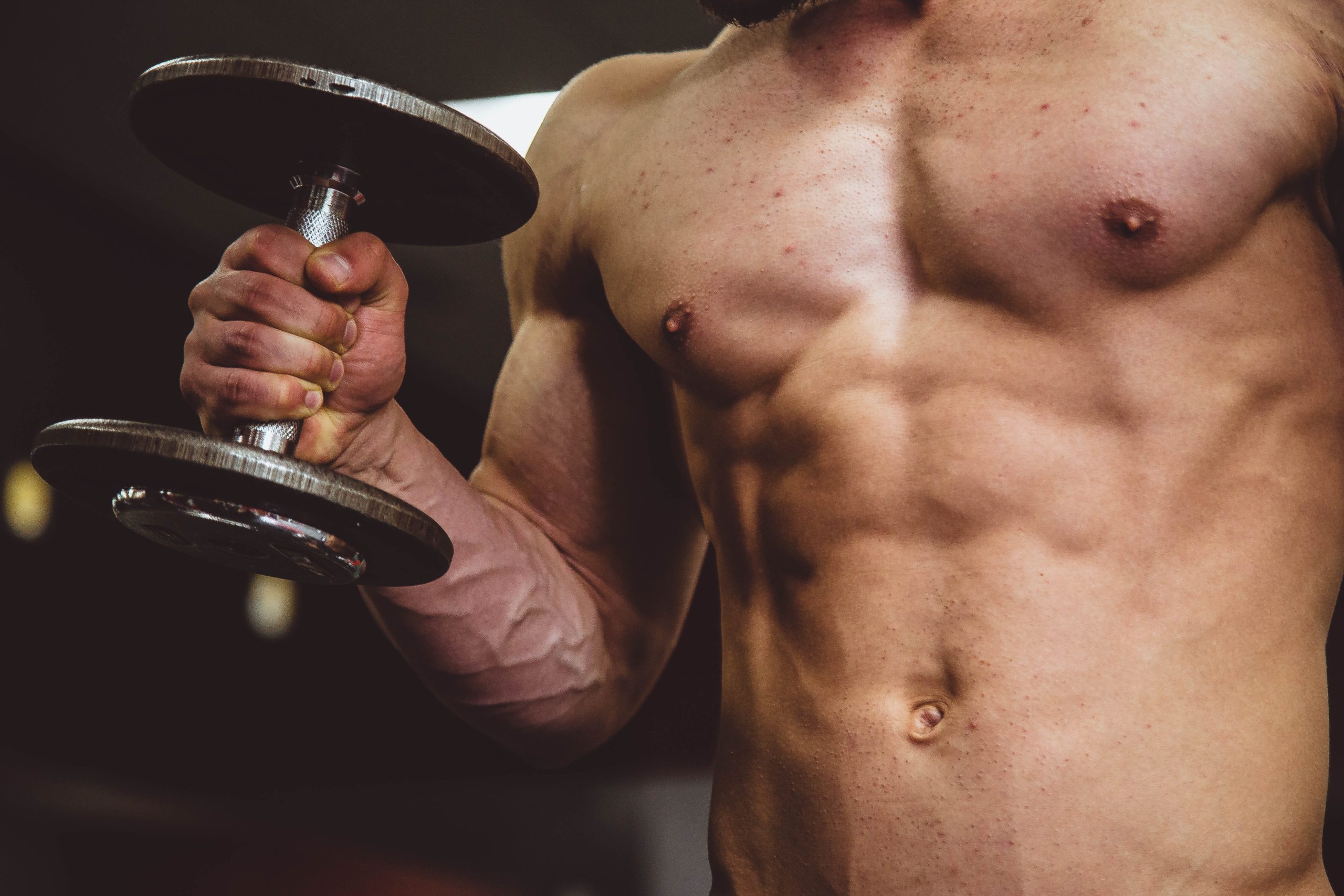Testosterone is the main male sex hormone. It’s responsible for increasing muscle mass, bone density and sperm production in males. But a high level of it can also cause some problems such as depression, anxiety and fatigue. How do you improve your levels?
The answer lies in boosting testosterone naturally. There are many ways to boost it, but we will focus on natural methods that don’t have any side effects or complications. Let’s learn how to raise testosterone.

1) Exercise – How to raise testosterone
Exercising has been known to help lower cholesterol, blood pressure and triglycerides. And the same goes with testosterone. Exercises stimulate the body into releasing more hormones that may be related to testosterone. One study found that exercising three times per week for 30 minutes could raise testosterone by 20% after six months.
Aerobic exercises like running, swimming or biking are good options since they burn calories which helps release endorphins. These endorphins make our bodies feel happy and relaxed while reducing stress. The best time to exercise would be first thing in the morning before breakfast when your body releases higher amounts of testosterone.
2) Diet – How to raise testosterone
Your diet affects how much testosterone circulates throughout your body. Foods rich in zinc and selenium help convert dietary protein into testosterone. This process is called aromatization and it helps release testosterone from its precursor (a protein called albumin). Other foods rich in vitamin B6, magnesium and other minerals help convert amino acids into testosterone.
3) Sleep
Sleep deprivation causes low testosterone. While sleeping 8 hours each night helps reduce cortisol secretion, an excess amount of cortisol reduces testosterone. Also, sleep deprivation disrupts the hypothalamus-pituitary axis which controls the hormonal system. So if you’re having trouble getting enough quality sleep, try taking melatonin supplements or herbal remedies like valerian root and chamomile tea.
4) Stress reduction
Stress can trigger the fight-or-flight response in your brain which increases adrenaline and cortisol secretion. Since these two hormones decrease testosterone, it makes sense to manage them to avoid this effect. Here are several things you can do to relieve stress:
* Relaxation techniques – meditation, yoga, deep breathing exercises, saunas, baths etc.
* Avoid caffeine and alcohol
* Get enough rest and eat well
5) Supplements – How to raise testosterone
Vitamin D deficiency is common among people who live far away from sunlight. Vitamin D plays an important role in regulating testosterone metabolism. Vitamin A also regulates testosterone production. Taking vitamin E supplements can prevent LDL oxidation which lowers testosterone. Zinc supplementation improves semen volume and sperm motility. Selenium supplementation can protect against radiation damage.
6) Sex – How to raise testosterone
Sexual activity stimulates the pituitary gland into producing more luteinizing hormone (LH), follicle stimulating hormone (FSH) and thyroid stimulating hormone (TSH). Testosterone production is stimulated through LH action on Leydig cells. FSH stimulates spermatogenesis (the formation of sperm) through Sertoli cells. TSH enhances testes growth. Sexual activity also triggers insulin secretion which boosts testosterone production.
7) Hormone replacement therapy
If you suffer from hypogonadism (low testosterone) then hormone replacement therapy might be recommended. For men suffering from primary hypogonadism (lack of testosterone production) there are solutions such as testosterone injections, pills, patches and gels. For women, estrogen alone or combined with progesterone can substitute for testosterone.
8) Anti-aging medicine
Anti-aging medicine focuses on slowing down aging processes so it may influence testosterone production. Some anti-aging medicines include resveratrol, catecholamines and dehydroepiandrosterone sulfate.
9) Herbs – How to raise testosterone
Herbal preparations including saw palmetto, horny goat weed, wild yam, fenugreek seeds, kelp, licorice, ginger and garlic contain phytoestrogens which bind to estrogen receptors. Phytoestrogens mimic estrogen and their activation results in increased testosterone production.
10) Prostate massage
Massage therapy can benefit men with prostate diseases especially those with urinary retention symptoms. Massages also help release oxytocin and prolactin which both play a part in testosterone regulation. Men should consult their doctors before trying this method.
11) Sex toys
Male masturbation can help increase testosterone levels. Masturbating with medical grade lubricants can also reduce infection risk.
12) Yoga
Yoga may not directly affect testosterone levels but it does indirectly. Studies show that regular practice of yoga raises HDL (good cholesterol) and lowers triglyceride levels. In addition, it promotes relaxation which leads to better health overall.
13) Meditation
Meditation has been proven effective at relieving stress and lowering cortisol levels. By doing this regularly, it prevents the negative effects of stress on testosterone production. If possible, meditate daily.
14) Stretching
Stretching exercises can help increase flexibility and range of motion. They can also increase testosterone production. To get started, lie flat on your back with legs extended straight up above your head. Now bend one leg towards your chest while keeping the opposite arm stretched out horizontally. Hold this position for 10 seconds then switch sides. Do this 3 times per day.
15) Strength training
Strength training strengthens muscles and bones and improves bone density. You’ll need resistance bands, hand weights, dumbbells or weight machines. Your goal should be to work all major muscle groups. Aim for 2 sessions per week.
16) Aerobics
Running and walking exercise programs can improve aerobic capacity and strength. Running helps build lean muscle mass while walking builds endurance. Both types of workouts increase testosterone production. Try incorporating cardio exercise into your routine every day and slowly increase intensity over time.
17) Weight loss – How to raise testosterone
Weight gain puts strain on joints and organs which can result in reduced testosterone production. Losing weight can help improve your metabolic rate which keeps your energy levels high. After losing weight, keep it off by eating healthy and staying active.
18) Alcohol consumption
Alcohol contains compounds called congeners. Congeners compete with testosterone for binding sites within liver enzymes. When this happens, less testosterone gets converted to its biologically active form. Drinking too much alcohol can lead to decreased testosterone production. Moderate drinking is safe though.
19) Smoking
Smoking cigarettes can negatively impact testosterone levels. Cigarette smoke contains toxins that irritate lung tissue and promote inflammation. Smokers often complain of erectile dysfunction and infertility. Nicotine binds to nicotinic acetylcholine receptors located in the central nervous system. Stimulation of these receptors inhibits testosterone production.
20) Drugs
Drug use can suppress testosterone production. Certain drugs used to treat psychiatric disorders, hypertension and diabetes can interfere with normal testosterone function. Sedatives, tranquilizers and stimulant medications can trigger changes in mood and behavior. Cocaine, amphetamines and marijuana inhibit testosterone production. Marijuana users experience lowered testosterone levels and slower recovery after intense workout sessions. Cocaine users lose muscle mass and develop enlarged clitoris (phallic structure). Amphetamine users tend to become aggressive and hostile.
21) Lack of sunlight exposure
Sunlight helps produce vitamin D which can increase testosterone levels. Vitamin D deficiency is widespread among adults in northern countries. People living in areas where sun exposure is limited cannot synthesize sufficient vitamin D. Vitamin D supplements can help overcome this problem.
22) Physical trauma
Physical trauma can impair testosterone production. Trauma victims may experience sexual dysfunction due to psychological stress. Long periods without proper nutrition and sleep can also cause low testosterone levels.
23) Environmental factors
Environmental factors such as temperature, humidity, air pollution and noise can alter testosterone levels. Cold temperatures can temporarily lower testosterone levels. High temperatures can increase it because heat can deplete the body’s stores of glucose and fatty acids needed for cellular respiration. Humidity and cold weather can impede skin circulation resulting in poor cell oxygen delivery. Air pollutants can cause respiratory issues and cardiovascular disease. Noise can disturb sleep patterns and increase daytime drowsiness.
24) Medical conditions
Medical conditions such as type II diabetes mellitus (T2DM), polycystic ovarian syndrome (PCOS), obesity, kidney disease, liver failure, HIV/AIDS, leukemia, lymphoma, multiple sclerosis, Parkinson’s disease, rheumatoid arthritis, sickle cell anemia, severe burns and cancer treatments can cause low testosterone. Low testosterone levels can worsen the condition and even shorten life expectancy.
25) Psychological distress
Psychological distress caused by depression, anxiety, postpartum depression and certain personality traits can also lead to low testosterone. In fact, low testosterone can sometimes serve as a diagnostic tool for depression.
26) Aging
As men age, testosterone production gradually declines. Age-related decline in testosterone levels is greater than the decline associated with smoking, obesity, lack of physical activity and environmental factors combined.
27) Genetics
Genetics can determine whether a man produces adequate testosterone levels. Genetic variations in genes encoding proteins involved in androgen synthesis and signaling can contribute to low testosterone levels.
28) Environmental chemicals
Chemicals present in everyday products and food can interact with steroid hormone pathways. Endocrine disrupters can bind to and modify the activities of nuclear receptor proteins. Once bound to these receptors, they can either

Leave a Reply